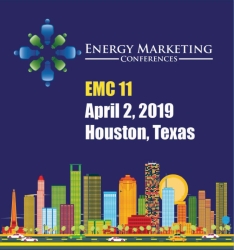|
|
|
|
|
Retail Suppliers, OCC Request PUCO Adopt Consultant's Recommendation That "FirstEnergy" Brand Should Be Dropped From FirstEnergy Solutions Name
The following story is brought free of charge to readers by EC Infosystems, the exclusive EDI provider of EnergyChoiceMatters.com
Interstate Gas Supply, the Northeast Ohio Public Energy Council, and the Ohio Consumers Counsel have filed separate comments supporting the recommendation from a consultant, which, as part of an audit of the FirstEnergy Ohio Operating companies' compliance with the corporate separation rules, has recommended that, if FirstEnergy Solutions continues as a retail supplier in Ohio, the name "FirstEnergy" should be removed from the competitive supplier's name
EnergyChoiceMatters.com exclusively first reported the consultant's recommendation last May (see details here)
IGS Energy, NOPEC, and OCC all agreed with the reasoning set forth in the consultant's report, further noting that the issue has been heightened given that FirstEnergy Solutions (FES) has sought various delays in a bankruptcy hearing concerning its agreement to sell its retail business to Exelon, as certain creditors are seeking to propose an alternative plan under which FES would retain its retail business (see details here).
OCC noted that the consultant's report concluded that, "FirstEnergy Solutions’ successful competitive retail electric services in the Ohio Companies’ territories may be related to its use of the FirstEnergy name."
OCC agreed that, "This is a reasonable finding by the Auditor. The PUCO should adopt the Auditor’s recommendation to remove 'FirstEnergy' from the name of FirstEnergy Solutions, to eliminate affiliate bias."
OCC said in its comments that, "FES’s use of the FirstEnergy name can mislead customers who are making choices in the electric market, contrary to R.C. 4928.10. In this regard, R.C. 4928.10 prohibits, inter alia, unfair, deceptive sales and marketing practices."
OCC said in its comments that, "FES’s use of the FirstEnergy name is unfair to those suppliers not affiliated with FirstEnergy, including that it is a 'market deficiency' under R.C. 4928.02(I)."
OCC said in its comments that if FES sells its retail generation business in Ohio, then the new owner should be precluded from using the 'FirstEnergy' name going forward.
OCC said that, "If FES keeps its retail generation business in Ohio, FES should use a different name that does not include 'FirstEnergy' or any other name that implies a connection to the three FirstEnergy Ohio Utilities."
However, if the PUCO continues to allow FES (or its successor) to use the FirstEnergy name, OCC said that, "FES should be required to pay, on a continuing basis, a substantial royalty to the FirstEnergy Utilities for the use of the FirstEnergy name, reputation and goodwill that has economic value. Otherwise, customers are effectively subsidizing the operations of FES. FES’s royalty payment will be fairer for competition. And the royalty should be directly applied as an offset on utility customers’ bills, to defray what is in effect a subsidy to the affiliate. The royalty should be based on a percentage of FES’s (or its successors’) gross revenues."
NOPEC said in its comments that, "the actions taken in the bankruptcy proceeding have severed the relationship among FES, FEC [FirstEnergy Corp.] and its affiliates, particularly FES's generation affiliates. The Settlement Agreement [in the bankruptcy] releases FEC from any responsibility or obligations to FES, and FES is in the process of selling or deactivating its generation facilities. This means that if the FES creditor group is successful in formulating a plan to retain FES's retail contracts, and continues CRES [retail] operations in Ohio, the entity emerging from bankruptcy will no longer market 'FirstEnergy' produced generation and will have no relation to the EDUs. As the Audit Report recognized, the FirstEnergy brand name is meant to connote to customers traditional 'trusted utility service,' including service from FEC's former legacy generating assets. If those assets are divested, as proposed, FES's reliance on the FirstEnergy brand would be unfair, misleading and deceptive R.C. 4928.10 and O.A.C. 4901:1-21-0S(C)."
In comments on the report, Ohio Edison Company, The Cleveland Electric Illuminating Company, and The Toledo Edison Company (the EDCs) opposed the consultant's recommendation regarding FES's name.
Regarding the consultant's conclusion that, "FirstEnergy Solutions successful competitive retail services in the OH companies’ territories may be related to the FirstEnergy name," the EDCs said that, "this observation is not supported by qualitative or quantitative data in the Report and is contradicted by FES’s filing for Chapter 11 Bankruptcy."
The EDCs further said in their comments that, "in the first quarter of 2018, FES filed for Chapter 11 bankruptcy. FirstEnergy Corp. has exited the competitive energy services business, and no longer exercises any control over FES, which is managed by independent officers and directors. Consequently, FirstEnergy Corp. cannot in any way encourage or influence FES to change its name. Moreover, forcing a CRES provider to change its name is likely unlawful, as it may infringe on a legally protected trademark, constitute a taking of private property without just compensation under the United States Constitution, and violate the rights of a CRES provider’s free speech under the United States Constitution. Since proposals to require a CRES provider to change its name suffer from a host of serious legal problems, it is no surprise that a proposal to do exactly that was previously presented to and soundly rejected by the Commission. The same recommendation in the Report must be rejected here again as well."
IGS Energy supported the consultant's recommendation regarding the use of the FirstEnergy name by FES, but said that, for similar reasons, the proposed prohibition should extend to any FirstEnergy entity selling non-regulated products and services
IGS Energy said that it was a "surprise" that the audit report makes no conclusions one way or the other whether FirstEnergy’s provision of non-electric products is in conformity with Ohio’s corporate separation law.
IGS Energy said that, "The glaring hole in the Audit Report is particularly troubling, given that the Retail Energy Supply Association recently filed a corporate separation complaint against FirstEnergy alleging that it provides non-electric services in a manner that extends FirstEnergy’s unregulated business unit with an undue preference and competitive advantage -- all while discriminating against other market participants."
IGS Energy alleged that FirstEnergy uses its consolidated utility bill to invoice customers for non-electric services
IGS Energy alleged that, "It may also provide this service for its affiliate, FES, as well when it responds to a request to bundle a 'CRES sales offering.' FirstEnergy, however, refuses to permit other market participants, such as IGS or the members of the Retail Energy Supply Association to use the consolidated utility bill to invoice and collect non-electric services."
IGS Energy said in its comments that, "FirstEnergy utilizes non-competitive assets such as the consolidated utility bill to invoice and collect for non-electric services, while prohibiting CRES providers from using the same assets to provide the same or similar services."
IGS Energy said that, "the Audit Report acknowledges that the FEP [FirstEnergy Products] group has access to restricted utility customer information. This clearly provides a competitive advantage and preference in violation of the purpose and letter of the law."
"[T]he FEP group provides unregulated services. It should have no access to any sensitive customer information," IGS Energy said in its comments
See background on the RESA complaint against the FirstEnergy EDCs referenced by IGS here
Turning to other issues, the EDCs opposed that consultant's finding that, "[t]he link to the FES website from the FirstEnergy website provides an unfair advantage," and the consultant's finding that, "[t]he link from the FirstEnergy website to the separate FES website could be interpreted as an endorsement of FES CRES services by the Ohio Companies."
The EDCs said that the phrase "could be interpreted" is, "inherently speculative," and said that the report provides no data to support this speculation.
"To the contrary, the link to the FES website is not to FES’s home page, nor to any page where FES posts offers for CRES services. Rather, the link is to a page dedicated to information on FES’s Chapter 11 Bankruptcy. An introduction to a CRES provider through a web page detailing the CRES provider’s Chapter 11 Bankruptcy cannot be credibly characterized as an endorsement of the CRES provider’s services. Eventually, this issue will become moot as well. For these reasons, this finding should be rejected," the EDCs said
Regarding the report's recommendation for the EDCs to, "[t]ransfer all Service Company personnel who support FES CRES sales and customer service in Ohio to FES," the EDCs said that the employees with sales responsibilities are FES employees. "Only the Retail Operations group, which provides back office services, consists of FirstEnergy Service Company employees. This structure is fully compliant with Ohio’s Corporate Separation Rules and is consistent with other shared services employees such as Information Technology, Supply Chain and Human Resources. Indeed, since FirstEnergy Corp. no longer has any control over FES, it cannot simply transfer Service Company employees to FES. Therefore, this recommendation is moot," the EDCs said
"These employees and their leadership did not violate any compliance regulation. They were trained and working as shared service staff and adhered to segregation of physical location and system and data access. As of the time of the audit, the Retail Operations groups was separated by two floors within the building and did not share any physical resources such as materials and system hardware or software. They also did not interact in any way, and their leadership did not have joint business unit meetings or communications. As a result of these physical and functional separation measures, the use of Service Company personnel complies with the Ohio Corporate Separation Rules," the EDCs said
Case No. 17-0974-EL-UNC
ADVERTISEMENT Copyright 2010-16 Energy Choice Matters. If you wish to share this story, please
email or post the website link; unauthorized copying, retransmission, or republication
prohibited.
January 2, 2018
Email This Story
Copyright 2010-19 EnergyChoiceMatters.com
Reporting by Paul Ring • ring@energychoicematters.com
NEW Jobs on RetailEnergyJobs.com:
• NEW! -- Business Development Manager -- Retail Supplier -- Houston
• NEW! -- Business Development Manager
• NEW! -- Regulatory & Compliance Analyst -- Retail Supplier
• NEW! -- Sales Quality & Training Manager -- Retail Energy
• NEW! -- Sales Analyst / Senior Level -- Retail Supplier
Houston
• NEW! -- Sales Director -- Houston
• NEW! -- Director of Sales
• NEW! -- Energy Sales Representative
|
|
|
|











